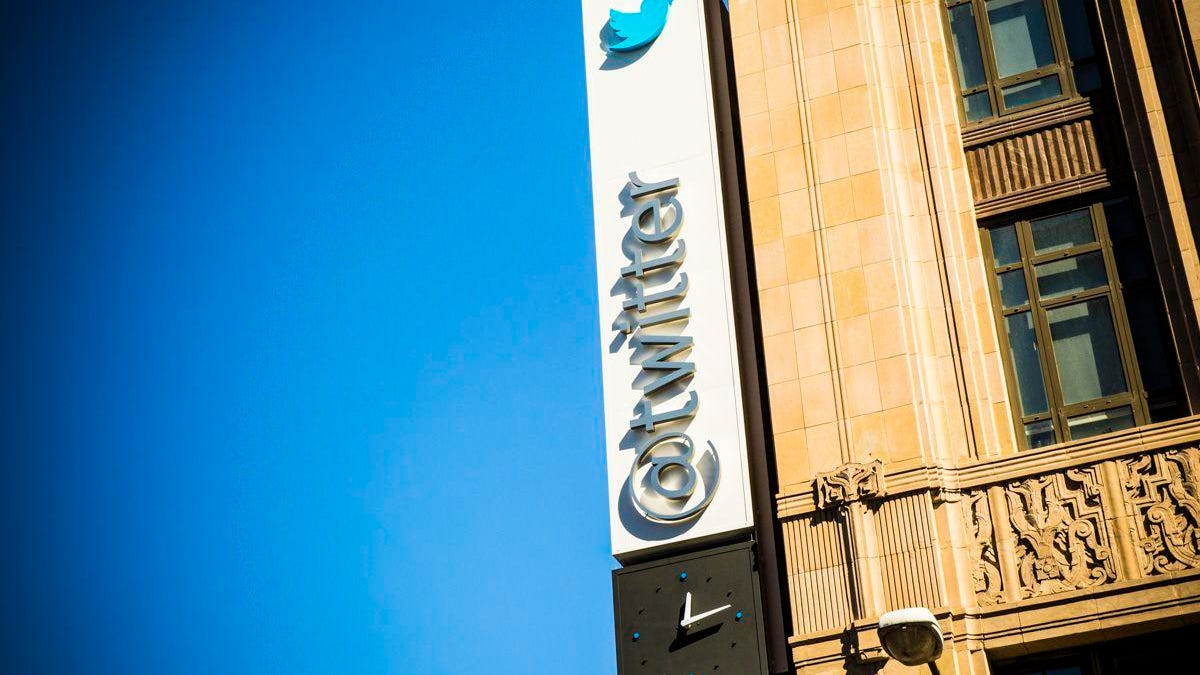Twitter vows to be a 'safe place' and knows it has to do better
The social media company pulls in new users even as it grapples with ways to tamp down ugly behavior on its platform.

Are things looking up for Twitter? CEO Jack Dorsey thinks so.
How seriously does Twitter take harassment?
On a conference call Thursday, we got a glimpse. CEO Jack Dorsey , who's been under increasing pressure to respond to the nonstop vicious treatment some people experience on his site, addressed the matter -- briefly.
"We're more focused than ever on making Twitter a safe place for everyone," Dorsey said.
But pointing to Twitter's recent efforts to curb bad behavior, he added, "We know this isn't enough, and we're taking a more aggressive stance in our abuse rules and how we enforce them."
It's the latest view into Twitter as a company and how responsible it feels to keep its user base of 330 million tweeters safe.
It also underscores an interesting contradiction for a site that has been credited with helping give voice to the Arab Spring, Occupy Wall Street and #BlackLivesMatter. Those and other moments over the years have helped Twitter become one of the most high-profile tech companies.
Twitter's relevance today is hard to debate. President Donald Trump turns to it daily to share his thoughts, and leaders from all manner of industries, countries and social movements rely on it to broadcast their ideas, statements and activities.
But despite its importance, critics say Twitter hasn't substantively taken on the harassment that happens on its service, which hits everyone from celebrities like the comedian Leslie Jones to everyday people as well.
Twitter's users are increasingly unwilling to put up with it. The issue came to a head in October when Rose McGowan's account was briefly suspended in the wake of tweets she sent about disgraced Hollywood film producer Harvey Weinstein. Following the high-profile #WomenBoycottTwitter protest in response, Dorsey last week announced changes to the company's harassment policies.
The changes include giving users who get unwanted sexual advances more power to report them. The company is also prohibiting "creep shots" and hidden camera content under a "nonconsensual nudity" category and said it will take unspecified actions toward organizations that have repeatedly promoted violence. Twitter also vows it will hide hate symbols behind a "sensitive image" warning.
During Thursday's earnings call with analysts, Dorsey spent only about a minute on the efforts Twitter is undertaking as it struggles to make the site safer, echoing what he said in the company's letter to shareholders. The changes include better informing users about what it's up to, including a look at its "safety calendar."
"We're addressing [abuse] from a policy, enforcement and product perspective, and just last week published a calendar of the upcoming safety work we have planned through January 2018," he said on the call. "It's the first time we've shared this level of visibility into our work."
Then there's the matter of Twitter (as well as Facebook and Google) facing scrutiny from congressional investigators on how tech companies were manipulated by Russian operatives meddling in the 2016 presidential election. A month ago, Twitter said it discovered 201 Russian accounts on its site that were connected to the 3,000 Russian-linked ads that Facebook told House and Senate intelligence committees were seen by 10 million people.
The topic didn't come up during Twitter's conference call Thursday, but two hours later, Dorsey tweeted that the company is "off-boarding" advertising from all accounts owned by Russia Today and Sputnik, and donating the projected $1.9 million in earnings from RT global advertising "to support external research into the use of Twitter in elections, including use of malicious automation and misinformation."
By the numbers
On the financial side, things were looking brighter for Twitter, which beat estimates.
For the third quarter, Twitter recorded net income of $78 million, or 10 cents per share, on revenue of $590 million.
Analysts had expected, on average, earnings of 7 cents per share on revenue of $586.7 million, according to Yahoo Finance.
"This quarter we made progress in three key areas of our business: we grew our audience and engagement, made progress on a return to revenue growth, and achieved record profitability," Dorsey said in a statement.
For the fourth quarter, Twitter said it sees the possibility of becoming "GAAP profitable" if the numbers shake out at the high end of its estimates. If that happens, it would be a first for the company as measured by what are known as generally accepted accounting principles.
Twitter's 330 million monthly average users for the third quarter marked a gain of 4 million, or 1 percent, from the second quarter, and an increase of 4 percent from a year ago.
But Gartner analyst Brian Blau said Twitter's growth still remains "pretty anemic." He said despite Twitter having a respectable quarter, the company needs "sustained periods of growth," to impress investors and advertisers.
On a somewhat jarring note, the company said in its press release that it had miscounted its monthly user numbers slightly since 2014. For instance, it had earlier reported 328 million users for the second quarter of this year. The corrected figure is 326 million, a change of about half a percent.
Still, during midday trading Thursday, Twitter shares were up as much as 19 percent climbing to around $20 per share.
Originally published Oct. 26 at 4:30 a.m. PT.
Updated at 6:49 a.m. PT: Added information from Twitter's conference call.
Updated at 7:50 a.m. PT: Added information about Twitter and Russia-linked advertising.
Updated at 12:05 p.m. PT: Added comments from an analyst.
iHate: CNET looks at how intolerance is taking over the internet.
CNET Magazine: Check out a sample of the stories in CNET's newsstand edition.



